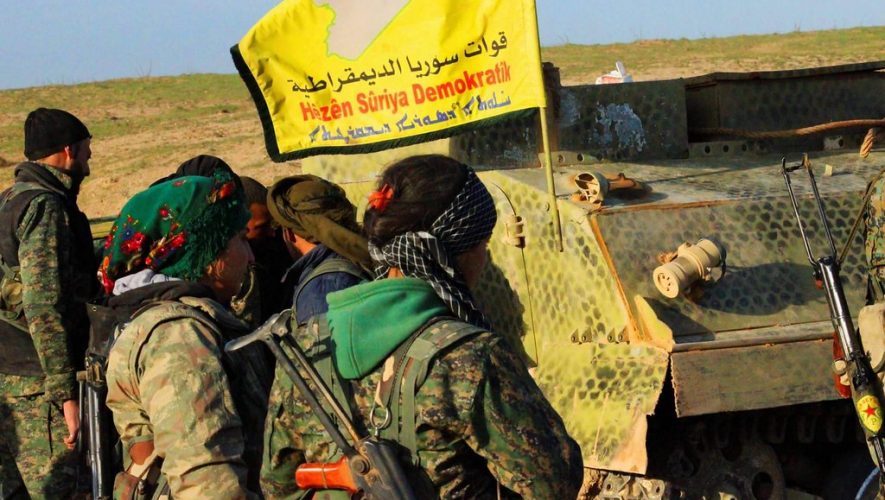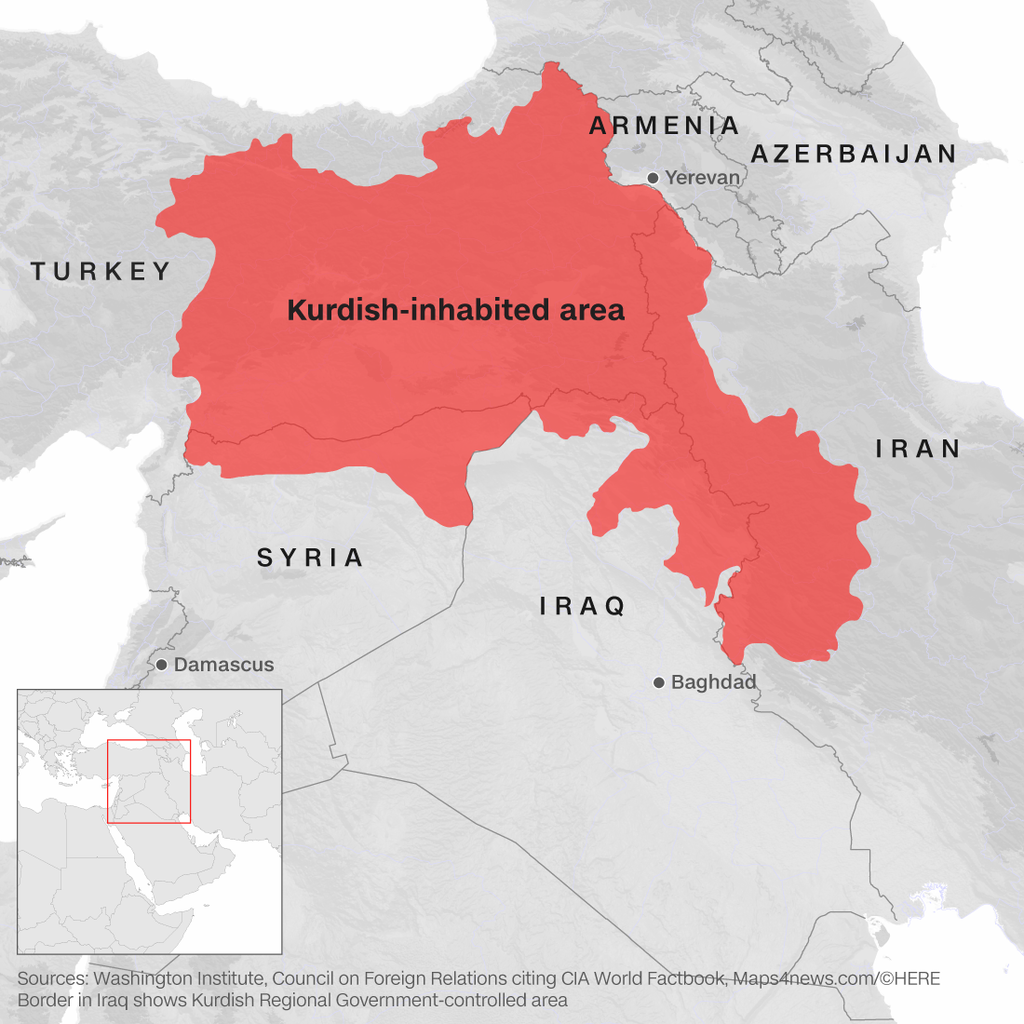The recent withdrawal of United States military forces from Syria has thrust the Kurds—an ethnic group inhabiting the south of Turkey, Syria, northern Iraq, and Iran—into the international spotlight. In recent years, Kurds predominantly located in Syria and southern Turkey have fought successfully with US forces against the regional strongholds of the Islamic State and Syrian President Bashar al-Assad. Throughout the protracted Syrian conflict, the Kurds have acted as the foot soldiers for the United States, as the Western power predominantly supported these guerilla troops from the air.
However, this partnership has existed far longer than the past five years; the United States has perceived the Kurds as allies since World War II. Nevertheless, their relationship is fraught, as the US has consistently abandoned the Kurds after immediate regional strategic goals were met, leaving the Kurds behind to defend themselves against hostile actors.
In the early nineties, President George H.W. Bush asked the Iraqi people to raise discontent against their leader, Saddam Hussein. Iraqi Kurds complied, acting on their unhappiness with the Hussein regime through protests and armed unrest. However, when Iraqi regime forces invaded Kurdish communities in response, the United States did not attempt to prevent the attacks or defend the Kurds once the attacks began.
Today, the Kurdish–American partnership lacks consistency or trust, ultimately inhibiting the Kurds from attaining their longtime goal of a sovereign state. For nearly a century, Kurdish strategic motivation has been rooted in the ethnic group’s desire for statehood. However, this goal has eluded the ethnic group since the botched signing of the Sykes–Picot Agreement and Treaty of Lausanne in the early twentieth century, which denied the Kurds a state as England and France created borders throughout the Middle East. Although the English and French had promised the Kurds a state in the Treaty of Lausanne, the population was dispersed throughout the region and left to find a home in the newfound states of other ethnic and religious groups. This unkept promise left the Kurds vulnerable to persistent oppression, poverty and persecution.
One of the largest ethnic Kurdish enclaves resides in the south of Turkey, a state that has long sought to erase Kurdish ethnic identity through state-sponsored programs and silence Kurdish attempts at political integration and participation. The Kurdish plight over the last half-century has only further motivated the ethnic group in its fight for self-determination.
Most recently, the Kurdish community in Northern Iraq sought to create a sovereign Kurdistan, and for some time the Kurdistan Regional Government was a functioning state apparatus accepted by the Iraqi government. However, with a 2017 Kurdish referendum voicing the population’s desire for full independence, the Iraqi government felt threatened and sought to reassert state authority in the north.
From 2015 until recently, the Kurds successfully operated a state in Syria known as the Democratic Federation of Northern Syria. The Syrian Defense Forces (SDF)—the foundation of the United States military presence in the region—were headquartered there. The evacuation of US troops diminishes Western presence to a tenth of its initial size, undermines the viability of that state, and once again leaves the Kurdish people and their right to self-determination at risk of attack from their fiercest adversary: Turkey.
Turkey has persecuted the Kurdish people within its borders for over forty years, often painting the ethnic group as a severe threat to national security. Turkish discrimination has manifested in systematic attempts to eradicate the Kurdish culture—predominantly through the regulation and prohibition of the Kurdish language on radio—from government institutions, various publications, and education. In response to this systematic persecution, the Kurdish Workers Party (PKK) was formed in 1978 with the aim of achieving an independent state in Southern Turkey for all Kurds. From its inception to today, the PKK has been perceived as both a political and militant group that many states, including Turkey and the US, deem a terrorist organization.
Beginning in 2015, as the SDF began to organize, the United States offered funding to fight the Islamic State and the Assad Regime in Syria. The Turkish government, a US and NATO ally, immediately voiced concerns about the western power’s collaboration with their longtime enemy, the Kurds. Despite Turkey’s adamant opposition, the United States continued their relationship with the Kurds as, at the time, it served crucial strategic goals.
However, Turkey’s demands could not fall on deaf ears forever, and the United States’ recent withdrawal from the region highlights that Turkey’s dissatisfaction is no longer going ignored. In fact, not only has the United States removed its support of its longtime Kurdish allies, it has also explicitly condoned Turkish military incursions into Democratic Federation of Northern Syria.
While the Kurdish forces based in Syria are effective battlefield strategists, they are ultimately still a guerilla militant group wielding limited light artillery. In the face of a developed state such as Turkey, the Kurds face an uphill battle, with few viable allies to defend and maintain the de facto sovereign state they sacrificed so much to attain.




